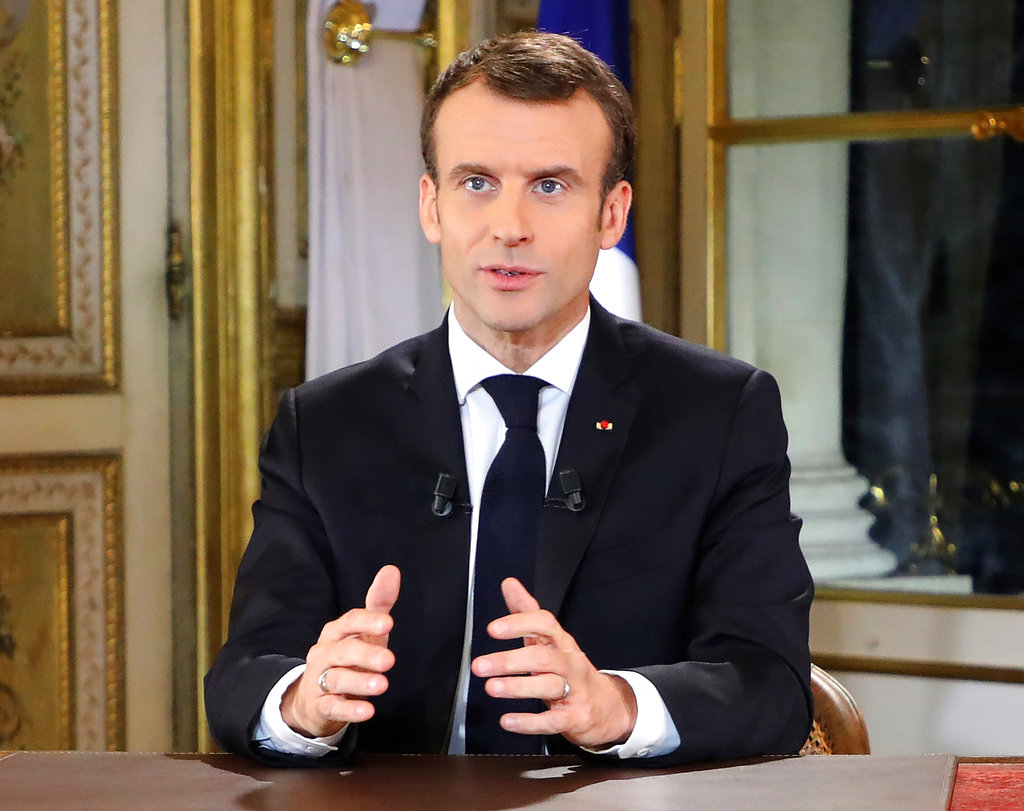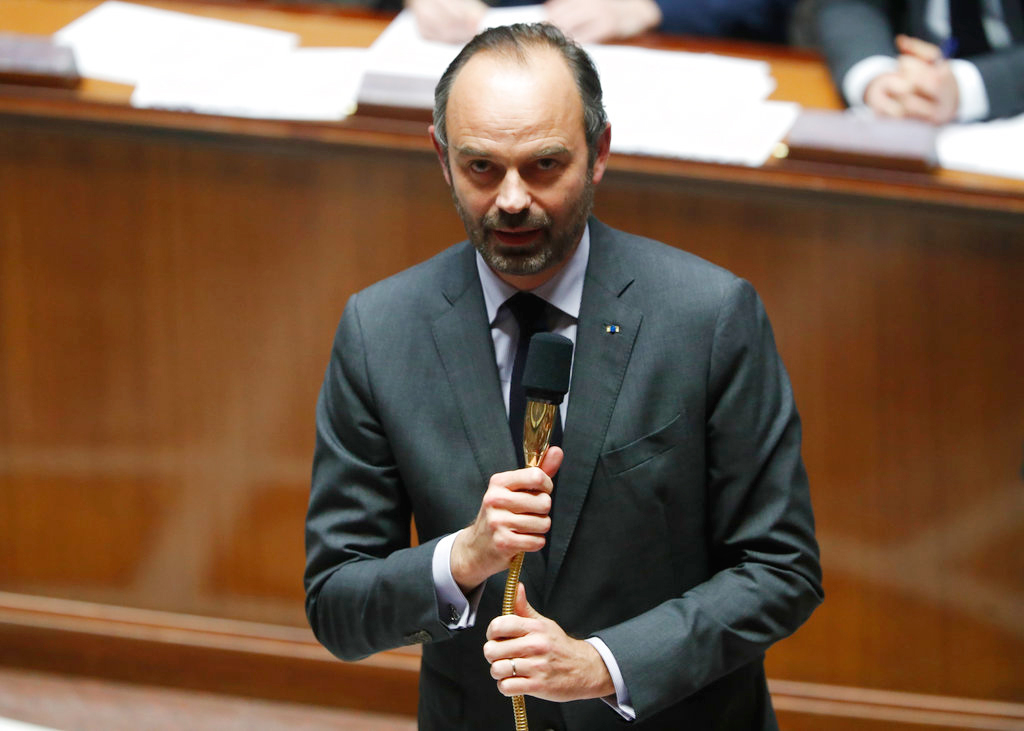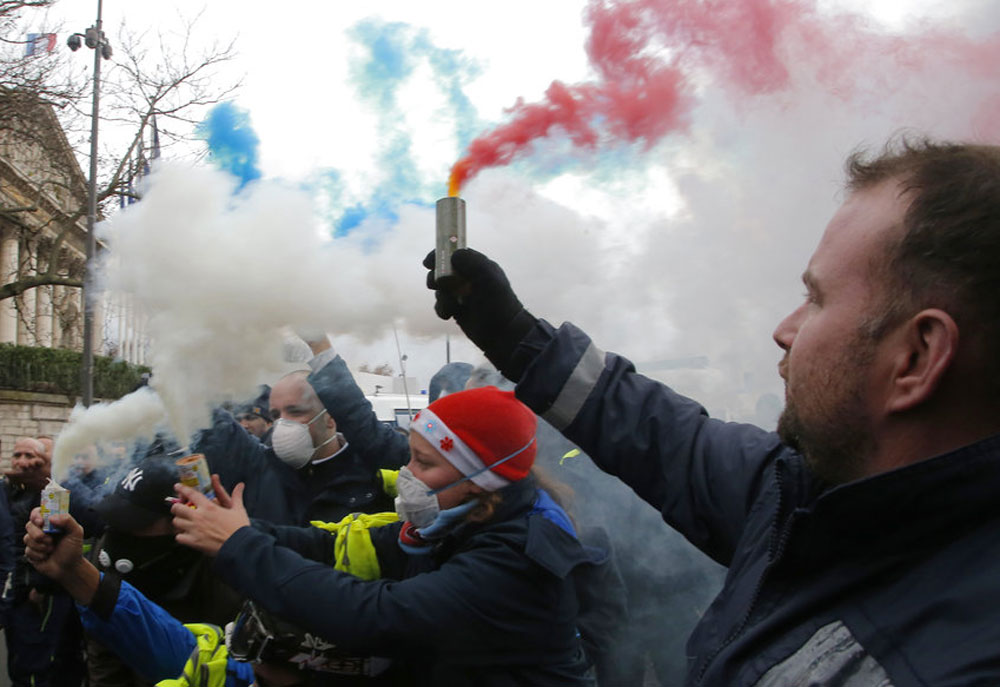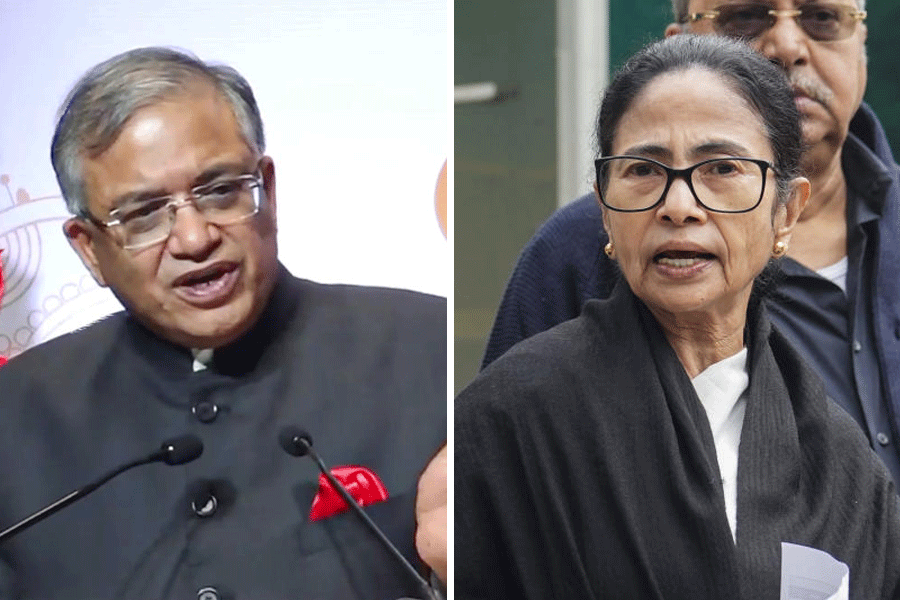Faced with violent protests and calls for his resignation, President Emmanuel Macron of France said on Monday that he had heard the anger of the many whose economic suffering has burst into the open in recent weeks and that he would take immediate steps to relieve their hardship.
Macron’s mea culpa on national television signaled a remarkable step back from his ambitions to reshape France's economy and become the European Union’s foremost leader. For now, his chief goal is shoring up his own political support in France.
He announced tax cuts and income increases for the struggling middle class and working poor, vowing to raise the pay of workers earning minimum wage. He promised to listen to the voices of the country, to its small-town mayors and its working people.
“There is anger, anger and indignation that many French share,” he said in a 13-minute prerecorded speech from the Elysée, the presidential palace.
Macron’s words and planned actions framed an attempt by a politician regarded as aloof and imperious to connect with ordinary citizens in Europe’s third-largest economy.
The speech followed a month of turmoil in which a movement known as the Yellow Vests rampaged through Paris and other French cities. The movement, which began as a revolt against a fuel tax increase, has morphed into an angry rebuke of Macron and his government’s failure to focus on what his critics call France’s forgotten middle class.
Attempting to show that he understood, Macron acknowledged the anger of “the couple who earn salaries that do not finish the month, and who get up every day early and come home late.” He sympathized with 'the single mother, a widow, a divorcée,” whose life is no longer worth living, he said, and “has no more hope.”
Macron recognised the anger too, he said, of retired people of small means who have “contributed all their lives and often helped both parents and children, and no longer make ends meet”.
And in a rare admission of having fallen short, he said he took responsibility for having not responded more quickly, saying that he realised that people had the impression that he had “other priorities” and was not concerned about their problems.
Macron said the details of his relief steps would be announced by Prime Minister Édouard Phillipe in Parliament on Tuesday, but there would be a supplement of 100 euros, or about $115, to workers earning the monthly minimum wage starting in January; taxes on overtime pay would be eliminated and retirees whose earnings are less than 2,000 euros a month, about $2,270, would no longer be asked to pay a recent increase in social security taxes.
Whether Macron’s actions will ease the deep-seated resentment toward him in France was unclear at best. So were the particulars of his proposals, which could translate into less in people’s pockets than he made it sound.
Criticisms came quickly from many of Macron’s political opponents, who said his proposals fell far short of people’s needs. More sobering for Macron could be the disappointment of many in the Yellow Vests movement who said his proposals did not speak to their needs.
While some protesters welcomed the president’s announcements as a first gesture, and a few praised him for his contrition, many more criticized what they called “half measures.”
On the dozens of Facebook groups dedicated to the movement that have buzzed over the past month, a majority of Yellow Vests protesters said they felt it was too little, too late. A number expressed dismay that he had not even mentioned the Yellow Vests movement by name.
“There are a lot of forgotten,” one user, Bruno Ceneda, said in the movement’s main group. “And the others only have the crumbs left.”
“He is kidding us,” said another, Jean-Jacques Brial.
Political analysts suggested that appeasing the anger toward Macron would require significantly more than what he promised.
'When one listens to the Yellow Vests, one hears many different demands, but there is more and more agreement that Emmanuel Macron should resign,” said Thomas Snegaroff, a professor of political science at Sciences Po in Paris. “The people allude to the French Revolution, ‘We have to cut off the head of the king.''
At the same time, many do not believe his departure would improve their situation, suggesting they are not sure themselves what would truly improve their lives.
Macron, elected in 2017 to a five-year term, came into office promising to make France more economically competitive. One of his early moves was to cut taxes on the wealthy to stimulate investment. Such changes alienated many working people who called him a “president of the rich.”
But Macron has shown little inclination to resign. His new political party holds an overwhelming majority in France’s legislature, and Macron enjoys considerable support among business leaders and many urban residents. But nationally, his popularity has collapsed and his domestic reform program has come under attack. To appease protesters, he has already canceled the hated fuel tax increase.
c.2018 New York Times News Service












